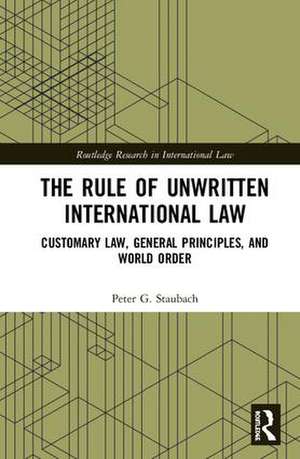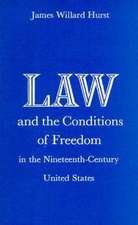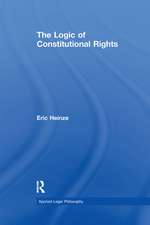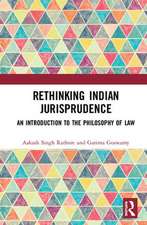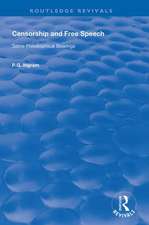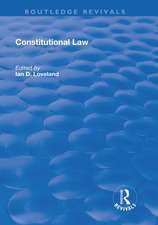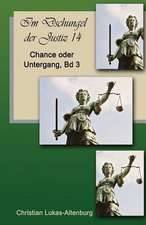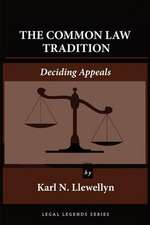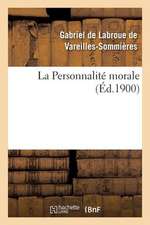The Rule of Unwritten International Law: Customary Law, General Principles, and World Order: Routledge Research in International Law
Autor Peter G. Staubachen Limba Engleză Hardback – 20 apr 2018
Among the issues discussed in the book are the dichotomy of its traditional and modern forms and the respective benefits and disadvantages of inductive and deductive approaches to its ascertainment. In the course of this analysis, the author draws insights from Friedrich August Hayek’s theory of law as a ‘spontaneous order’, an information-processing device which enables the participants of a legal system to make use of decentralised knowledge. The book argues that the major advantage of custom as a source of international law lies in the fact that it is the result of a gradual process of trial and error, rather than the product of deliberate planning. This makes it a particularly apposite source of law in a time of seismic shifts in the distribution of power within a vastly diverse community of States, when a new global order is expected to emerge, the contours of which are not yet clearly discernible.
This book applies general concepts of legal philosophy to explain the continuing relevance of custom as a source of international law while at the same time inferring from this theoretical framework concrete practical and methodological consequences, the most important of which is the special role that purposive interpretation plays with respect to rules of international custom. Given this broad approach, the book will be of interest to several groups of potential readers including academics interested in the philosophy of customary law in general, academic international lawyers and legal practitioners, especially judges, scholars of international relations and all those interested in how the international community of States organises itself.
| Toate formatele și edițiile | Preț | Express |
|---|---|---|
| Paperback (1) | 384.48 lei 6-8 săpt. | |
| Taylor & Francis – 14 aug 2020 | 384.48 lei 6-8 săpt. | |
| Hardback (1) | 1002.95 lei 6-8 săpt. | |
| Taylor & Francis – 20 apr 2018 | 1002.95 lei 6-8 săpt. |
Din seria Routledge Research in International Law
-
 Preț: 296.43 lei
Preț: 296.43 lei -
 Preț: 151.73 lei
Preț: 151.73 lei -
 Preț: 311.94 lei
Preț: 311.94 lei -
 Preț: 311.70 lei
Preț: 311.70 lei - 8%
 Preț: 375.14 lei
Preț: 375.14 lei -
 Preț: 281.27 lei
Preț: 281.27 lei - 18%
 Preț: 1053.16 lei
Preț: 1053.16 lei -
 Preț: 484.47 lei
Preț: 484.47 lei -
 Preț: 282.62 lei
Preț: 282.62 lei -
 Preț: 410.50 lei
Preț: 410.50 lei - 18%
 Preț: 1054.75 lei
Preț: 1054.75 lei - 18%
 Preț: 727.38 lei
Preț: 727.38 lei -
 Preț: 422.04 lei
Preț: 422.04 lei - 18%
 Preț: 1054.71 lei
Preț: 1054.71 lei - 18%
 Preț: 1074.44 lei
Preț: 1074.44 lei - 18%
 Preț: 1059.48 lei
Preț: 1059.48 lei - 18%
 Preț: 1060.52 lei
Preț: 1060.52 lei - 18%
 Preț: 1058.43 lei
Preț: 1058.43 lei -
 Preț: 452.27 lei
Preț: 452.27 lei -
 Preț: 451.41 lei
Preț: 451.41 lei -
 Preț: 419.11 lei
Preț: 419.11 lei - 28%
 Preț: 822.34 lei
Preț: 822.34 lei -
 Preț: 494.07 lei
Preț: 494.07 lei - 18%
 Preț: 1118.46 lei
Preț: 1118.46 lei -
 Preț: 491.60 lei
Preț: 491.60 lei -
 Preț: 490.25 lei
Preț: 490.25 lei - 18%
 Preț: 1178.15 lei
Preț: 1178.15 lei -
 Preț: 444.62 lei
Preț: 444.62 lei - 18%
 Preț: 1050.78 lei
Preț: 1050.78 lei -
 Preț: 454.22 lei
Preț: 454.22 lei - 14%
 Preț: 301.05 lei
Preț: 301.05 lei -
 Preț: 419.32 lei
Preț: 419.32 lei - 18%
 Preț: 1052.38 lei
Preț: 1052.38 lei - 18%
 Preț: 1111.87 lei
Preț: 1111.87 lei - 18%
 Preț: 1112.34 lei
Preț: 1112.34 lei - 15%
 Preț: 550.99 lei
Preț: 550.99 lei - 18%
 Preț: 1054.71 lei
Preț: 1054.71 lei -
 Preț: 422.91 lei
Preț: 422.91 lei -
 Preț: 286.51 lei
Preț: 286.51 lei - 18%
 Preț: 1117.88 lei
Preț: 1117.88 lei
Preț: 1002.95 lei
Preț vechi: 1223.11 lei
-18% Nou
Puncte Express: 1504
Preț estimativ în valută:
191.94€ • 208.42$ • 161.23£
191.94€ • 208.42$ • 161.23£
Carte tipărită la comandă
Livrare economică 22 aprilie-06 mai
Preluare comenzi: 021 569.72.76
Specificații
ISBN-13: 9780815382911
ISBN-10: 081538291X
Pagini: 242
Dimensiuni: 152 x 229 x 14 mm
Greutate: 0.53 kg
Ediția:1
Editura: Taylor & Francis
Colecția Routledge
Seria Routledge Research in International Law
Locul publicării:Oxford, United Kingdom
ISBN-10: 081538291X
Pagini: 242
Dimensiuni: 152 x 229 x 14 mm
Greutate: 0.53 kg
Ediția:1
Editura: Taylor & Francis
Colecția Routledge
Seria Routledge Research in International Law
Locul publicării:Oxford, United Kingdom
Public țintă
PostgraduateCuprins
I. Introduction
II. Unwritten Law as Self-Organisation: A Historical Perspective
III. Theoretical Problems and Methodological Approaches
IV. The Quest for Objectivity
V. The Riddle of Purposive Interpretation
VI. Analogical Reasoning and the Recognition of General Principles of Law
VII. Conclusion: The Dialectics of World Public Order
II. Unwritten Law as Self-Organisation: A Historical Perspective
III. Theoretical Problems and Methodological Approaches
IV. The Quest for Objectivity
V. The Riddle of Purposive Interpretation
VI. Analogical Reasoning and the Recognition of General Principles of Law
VII. Conclusion: The Dialectics of World Public Order
Notă biografică
Peter G. Staubach is a research fellow at Humboldt University in Berlin, Germany.
Descriere
This book applies general concepts of legal philosophy to explain the continuing relevance of custom as a source of international law, while at the same time inferring from this theoretical framework concrete practical and methodological consequences, the most important of which is the special role that purposive interpretation plays with respect to rules of international custom. Given this broad approach, the book will be of interest to several groups of potential readers including academics interested in the philosophy of customary law in general, academic international lawyers and legal practitioners, especially judges, and scholars of international relations and all those interested in how the international community of States organises itself.
